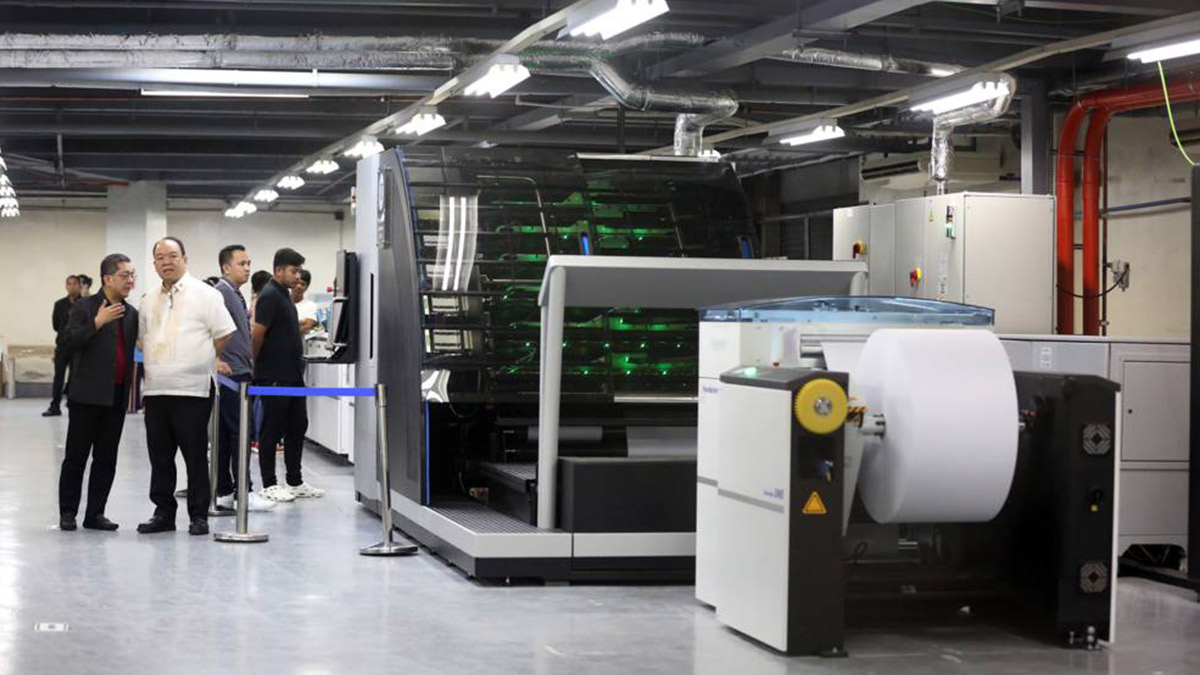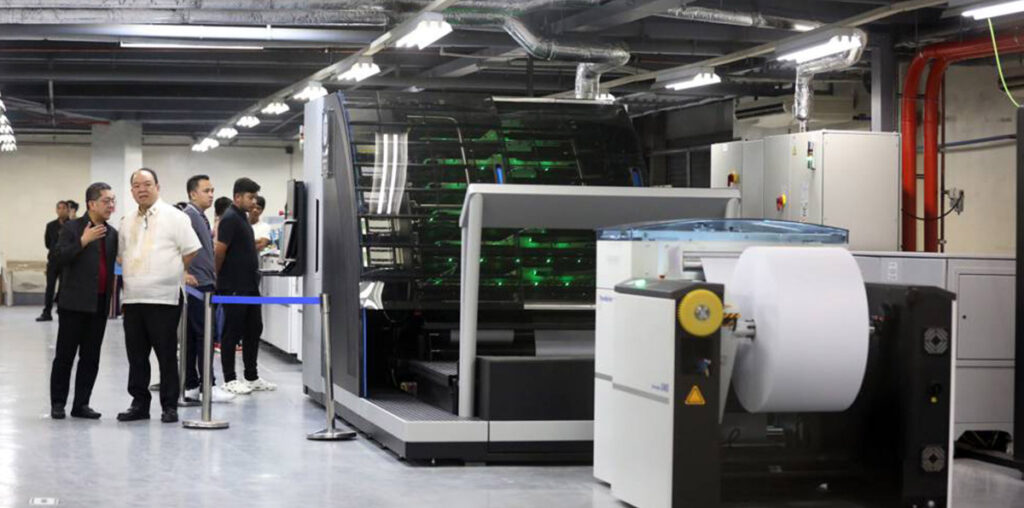
Commission on Elections (Comelec) chairman George Garcia and Comelec Commissioner Ernesto Maceda Jr. during the ceremonial turnover of the printing machines and printing of test ballots for the 2025 National and Local Elections at the NPO in Quezon City on Saturday, October 26, 2024. —Inquirer photo/Niño Jesus Orbeta
MANILA, Philippines — The Commission on Elections (Comelec) on Sunday justified its regulation of election campaigning on social media platforms, assuring the public it would not infringe on the candidates’ freedom of expression or speech.
Comelec Chair George Garcia, in an interview on Teleradyo Serbisyo, said its Resolution No. 11064 would stop the propagation of misinformation and disinformation, and level the playing field in online campaigning.
“We have made sure in these guidelines that we won’t interfere with the contents of their online campaigns. We won’t meddle with those because regulating content might violate their freedom of expression and freedom of speech,” he said.
READ: Comelec: Bets must declare all online channels
While there is still no law to regulate social media, Garcia said the Comelec decided it was prudent to set guidelines on online campaigning for the national and local elections, noting the poll body already has very strict guidelines on election campaigning on radio, TV and print platforms.
Article continues after this advertisement
Takedown requests
Promulgated on Sept. 17, Comelec Resolution No. 11064 lays out the rules on the use of social media, artificial intelligence (AI) and internet technology for digital election campaigns for the 2025 national and local elections, and the first ever parliamentary elections in the Bangsamoro Autonomous Region in Muslim Mindanao.
Article continues after this advertisement
It requires candidates and parties to register their official social media accounts, websites and similar online campaign platforms with the Comelec on or before Dec. 13. Failure to register could lead to takedown requests by the commission.
Any person or entity other than a candidate or political party, who creates or manages social media accounts and pages, websites, podcasts, blogs, vlogs and other online and internet-based campaign platforms primarily designed or used during the election period to solicit votes and promote the election or defeat of a particular candidate or candidates, should also be registered.
READ: Fil-Ams for Kamala on double time
“We want the online accounts affiliated to a particular party or candidate to be registered so we could monitor them, especially on their campaign spending,” Garcia said.
‘Equal opportunity’
“If they are not doing anything wrong and their campaign posts are not illegal, then they should not be afraid to register their accounts with us,” he added.
Under Republic Act No. 7166, a law enacted in 1991, candidates [except for President and Vice President] can only spend P3 to P5 for each voter, depending if they belong to a political party or not.
“Our purpose is to provide equal opportunity for all the candidates to serve the public, whether they have money or not to wage an election campaign online,” Garcia said.
The Comelec chief said they were aware of the criticisms on their resolution and assured they would sit down with these groups to discuss their criticisms. They could also ask the Supreme Court to strike down the resolution.
But Garcia appealed to critics to give the Comelec rules a chance, saying it is the first time in the country’s election history for such guidelines.
Poll watchdog Kontra Daya earlier called for the Comelec to repeal Resolution 11064, saying it was “censorship in the guise of fighting fake news.”
The Makabayan bloc of lawmakers also sought a dialogue with the Comelec about the resolutions overbroad scope of the guidelines, which might infringe on free speech and privacy.
For Danilo Arao, Kontra Daya convener and journalism professor at the University of the Philippines, instead of regulation, the Comelec “should focus on educating our citizens so they can tell what is credible news from what is not, as well as how to use AI and other technologies responsibly.”

